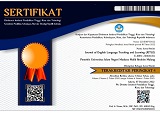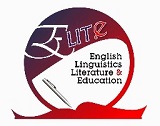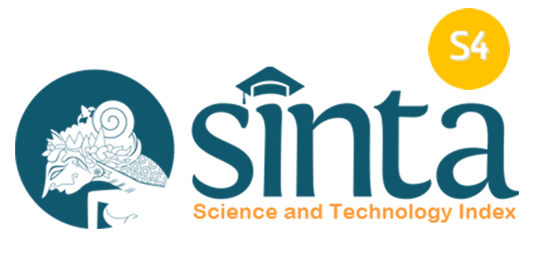Developing reading comprehension assessment: flashcard assessment media for junior high school student
Abstract
Keywords
Full Text:
PDFReferences
Afflerbach, P. (2012). Understanding and using reading assessment: A classroom guide. Pearson.
Afflerbach, P. (2018). Reading assessment: Principles and practices for elementary teachers. Pearson.
Aiken, L. R. (1985). Three coefficients for analyzing the reliability and validity of ratings. Educational and Psychological Measurement, 45(1), 131–142. https://doi.org/10.1177/0013164485451012
Ainsworth, S. (2006). Designing effective multimedia for learning. Educational Technology Research and Development, 54(3), 191-221.
Anderson, L. W., & Krathwohl, D. R. (2001). A taxonomy for learning, teaching, and assessing: A revision of Bloom's taxonomy of educational objectives. Longman.
Anderson, R. C., & Pearson, P. D. (1984). A schema-theoretic view of reading comprehension. Reading Research Quarterly, 16(4), 433-452.
Arikunto, S. (2019). Prosedur penelitian: Suatu pendekatan praktik. Rineka Cipta.
Biggs, J., & Tang, C. (2020). Teaching for quality learning at university (5th ed.). Open University Press.
Black, P., & Wiliam, D. (2009). Developing the theory of formative assessment. Educational Assessment, Evaluation and Accountability, 21(1), 5-31.
Berge, Z. L. (2008). Collaboration in the 21st century. International Journal on E-Learning, 7(1), 5-12.
Borg, W. R., & Gall, M. D. (2003). Educational research: An introduction (7th ed.). Pearson.
Branch, R. M. (2009). Instructional design: The ADDIE approach. Springer.
Brookhart, S. M. (2013). How to assess authentic learning. Pearson.
Creswell, J. W. (2012). Educational research: Planning, conducting, and evaluating quantitative and qualitative research. Pearson.
Danuwijaya, R. (2018). Item analysis in educational assessment. Journal of Educational Measurement and Evaluation, 6(2), 95-103.
Duke, N. K., & Carlisle, J. (2011). The development of comprehension. Dalam M. L. Kamil, P. D. Pearson, E. B. Moje, & P. P. Afflerbach (Eds.), Handbook of Reading Research, Volume IV (hal. 199–228). Routledge.
Fisher, D., & Frey, N. (2014). The formative assessment action plan. ASCD.
Grabe, W. (2009). Reading in a second language: Moving from theory to practice. Cambridge University Press.
Grabe, W., & Stoller, F. L. (2019). Teaching and researching reading (3rd ed.). Routledge.
Hinkel, E. (2016). Teaching academic ESL writing: Practical techniques in vocabulary and grammar. Routledge.
Hudson, R. F., Lane, H. B., & Pullen, P. C. (2005). The relationship between fluency and reading comprehension: A meta-analysis. Educational Psychology Review, 17(1), 1-29.
Johnson, D. (2020). The power of interactive learning: Improving engagement through flashcards. Educational Technology Journal, 24(3), 44-56.
Johnston, P. (2015). The role of assessment in the reading process. Reading Research Quarterly, 50(2), 133-145.
Kemdikbud, R. (2022). Kurikulum Merdeka. Kementerian Pendidikan, Kebudayaan, Riset, dan Teknologi Republik Indonesia.
Kintsch, W. (1998). Comprehension: A paradigm for cognition. Cambridge University Press.
Kočiský, M., et al. (2018). Cognitive models in reading comprehension. Journal of Cognitive Science, 9(2), 122-135.
Kimmons, R., & Veletsianos, G. (2018). Emerging technologies and the future of education. Education and Information Technologies, 23(1), 1-17.
LaBerge, D., & Samuels, S. J. (1974). Toward a theory of automatic information processing in reading. Cognitive Psychology, 6(2), 293-323.
Meyer, B. J. F. (1985). Prose comprehension and structure. In Theoretical Models and Processes of Reading (pp. 537-552). International Reading Association.
Molenda, M. (2003). In search of the elusive ADDIE model. Performance Improvement, 42(5), 34-36.
Nation, I. S. P. (2009). Teaching ESL/EFL reading and writing. Routledge.
Nation, K. (2009). Reading comprehension and vocabulary: What’s the connection?. Dalam R. K. Wagner, C. Schatschneider, & C. Phythian-Sence (Eds.), Beyond decoding: The behavioral and biological foundations of reading comprehension (hal. 176–194). Guilford Press.
Ordetx, R. (2021). The importance of aligning assessments with instruction. Journal of Educational Leadership, 9(4), 44-56.
Paris, S. G., & Hamilton, E. E. (2019). The role of assessment in literacy development. Educational Psychologist, 54(1), 1-14.
Paris, S. G., & Paris, A. H. (2003). Assessing and teaching reading comprehension: Perspectives from cognitive and instructional psychology. Educational Psychology Review, 15(1), 1-22.
Perfetti, C. A., Landi, N., & Oakhill, J. (2005). The acquisition of reading comprehension skill. In The Handbook of Reading Research (Vol. 3, pp. 227-247). Lawrence Erlbaum Associates.
Paul, R., & Elder, L. (2008). Critical thinking: Tools for taking charge of your learning and your life. Pearson.
Popham, W. J. (2014). Classroom assessment: What teachers need to know. Pearson.
Pressley, M. (2000). Comprehension instruction: A focus on understanding. Journal of Educational Psychology, 92(1), 122-132.
Reg, N. (2019). Improving Student’S Reading Comprehension Through Flash Card At the Tenht-Grade of Sma Negeri 3 Luwu Larompong.
Riski, Y.A & Wahyuni, S. (2023). Developing mall-based reading comprehension test for seventh grade using quizizz. JALL (Journal of Applied Linguistics and Literacy), 7(2), 322-334.
Rupp, A. A., et al. (2019). Cognitive models in reading comprehension assessment. Educational Psychologist, 54(4), 220-239.
Smith, F. (2004). Understanding reading: A psycholinguistic analysis. Lawrence Erlbaum Associates.
Snow, C. E. (2002). Academic literacy and the language of schooling. Pearson.
Snow, C. E. (2010). Academic language and the challenge of reading for learning about science. Science, 328(5977), 450-452.
Snow, C. E. (2020). Academic language and the challenge of reading comprehension. International Journal of Educational Research, 102, 101-112.
Tavakol, M., & Dennick, R. (2011). Making sense of Cronbach's alpha. International Journal of Medical Education, 2, 53-55.
Wahyuni, S. & Badriyah, L. (2015). Using think pair share method to improve the reading skill on narrative text of the students of MTsN Kunir Blitar. Realita Journal, 13 (1), 97-111.
Wahyuni, S & Yulaida, H. (2014). Flashcards as a means to improve EFL learners·Vocabulary mastery. JEELS (Journal of English Education and Linguistics Studies) 1(1):47-61. DOI:10.30762/jeels.v1i1.35
Wiranegara, D. A. (2022). Implementing SSS (start with simple stories) method to improve students’ reading comprehension in extensive reading activity. Journal of English for Academic and Specific Purposes (JEASP), 5(1). https://doi.org/10.18860/jeasp.v5i1.16583
Wiliam, D. (2011). Embedded formative assessment. Solution Tree Press
DOI: https://doi.org/10.18860/jetle.v6i1.30914
Refbacks
- There are currently no refbacks.
Jalan Gajayana 50 Malang 65144, Jawa Timur, Indonesia

This work is licensed under a Creative Commons Attribution-ShareAlike 4.0 International License.
Indexed by





